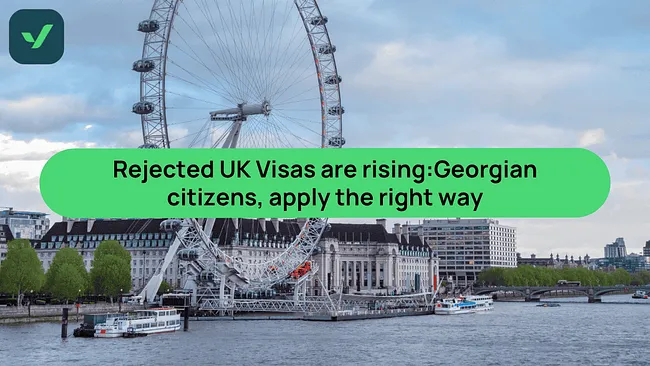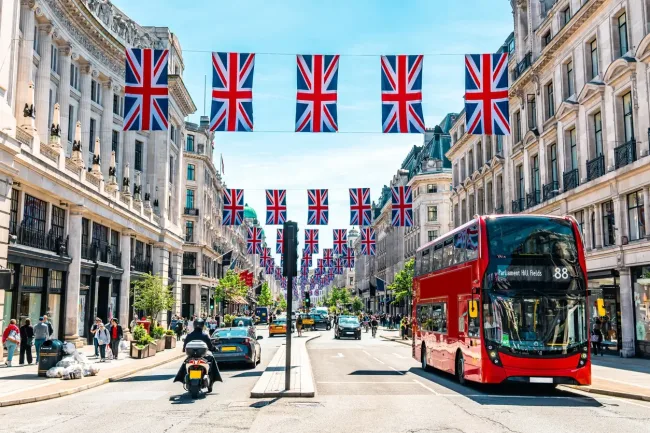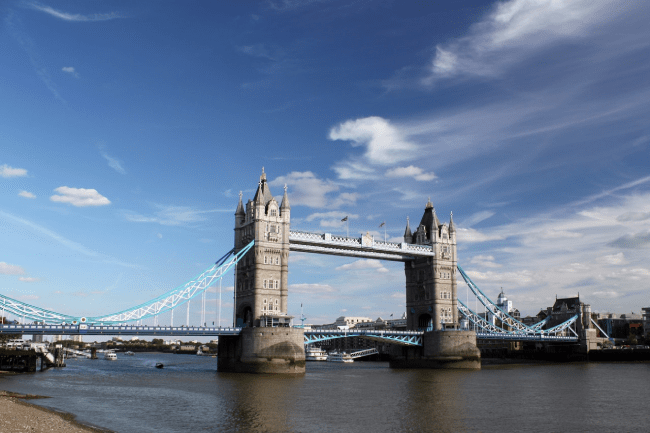
United Kingdom
Welcome to United Kingdom
Traveling to the United Kingdom? You may need a visa – find out if you do, which type, and how to apply so you can get the paperwork out of the way and focus on your trip.

What’s a United Kingdom Visitor Visa and who’s it for?
Who’s the United Kingdom Visitor Visa (Tourist Visa) for? Nationals or citizens from over 100 countries must apply for a UK Standard Visitor Visa, including India, China, South Africa, Saudi Arabia, and more.
Who’s not eligible for a United Kingdom Visitor Visa?
-
Individuals who intend to live in the UK for long periods through frequent or successive visits.
-
People looking to marry, register a civil partnership, or give notice of marriage or civil partnership in the UK (a Marriage Visitor Visa is required for these purposes).
What’s the purpose of a United Kingdom Visitor Visa?
Short-term activities like sightseeing, visiting family, volunteering for up to 30 days with a registered charity, transiting through the UK to another country, business, school exchange programs, recreational courses of up to 30 days, and medical treatment.
How long can you stay with a United Kingdom Visitor Visa?
The visa typically allows a stay of up to 180 days in total in the UK.
What’s a United Kingdom ETA and who’s it for?
Who’s the United Kingdom ETA for? The ETA is currently being implemented for different nationalities that don’t need a visa to visit the UK. At the time of writing (Feb 2024), only nationals from Qatar can apply for the UK ETA.
From 1 February 2024, the scheme will be introduced for nationals of Bahrain, Kuwait, Oman, United Arab Emirates, Saudi Arabia, and Jordan.
Eventually, all visa-exempt nationals must have an ETA, including those from the European Union. We will update this page accordingly.
What’s the purpose of a United Kingdom ETA?
Tourism, business, short-term studies, transit, and visiting friends and family.
How long can you stay with a United Kingdom ETA?
Once you've got your ETA, you're all set for multiple trips for up to 2 years after issued, and can stay in the country up to 186 days per entry.
What’s a United Kingdom Visa Waiver and who’s it for?
Who’s the United Kingdom Visa Waiver for? Currently, the UK Visa Waiver is only available for nationals from Kuwait, Bahrain, Oman, Saudi Arabia, and the United Arab Emirates.
Starting 1 February 2024, citizens of these countries will be required to apply for the UK Electronic Travel Authorization (ETA) for their trips, as it will replace the existing visa waiver for them.
What’s the purpose of a United Kingdom Visa Waiver?
Tourism, business, and transit.
How long can you stay with a United Kingdom Visa Waiver?
This is a single-entry document, with the duration of stay determined by the travel dates specified in the application.
Learn more about the United Kingdom Visa Waiver
What’s a United Kingdom - Ukraine Family Scheme Visa and who’s it for?

Who’s the United Kingdom - Ukraine Family Scheme Visa for?
Ukrainian nationals and certain family members to join their UK-based immediate family members, including British nationals, settled residents, or those with refugee or humanitarian protection status in the UK, provided that they have a qualifying relationship and have been living in Ukraine on or immediately before 1 January 2022.
What’s the purpose of a United Kingdom Visa Waiver?
It’s designed to provide safety and refuge to Ukrainian nationals and their families affected by the crisis in Ukraine. The visa allows residence, working, and enrollment in educational courses or pursuing studies in the United Kingdom.
How long can you stay with a United Kingdom - Ukraine Family Scheme Visa?
The visa allows a stay of up to 36 months (3 years) in the United Kingdom and grants multiple entries, allowing visa holders to travel to and from the UK within the validity period.
Learn more about the United Kingdom - Ukraine Family Scheme Visa
What’s a United Kingdom Student Visa and who’s it for?
Who’s the United Kingdom Student Visa for?
International students enrolled in UK educational institutions.
What’s the purpose of a United Kingdom Student Visa?
Attend courses at a UK educational institution as a full-time student, work part-time during term time (hours vary based on course level and type) and full-time during holidays, and engage in work placements or internships as part of the course (if applicable).
How long can you stay with a United Kingdom Student Visa?
Typically aligned with the length of the course plus a short period before and after.
At iVisa, we currently don’t currently offer the UK Student Visa, but you can find out more on the UK Government Website.
What are the United Kingdom long-term visa options?

The United Kingdom offers several long-term visa options for various purposes, such as employment, study, business, and residence. Here are some of the common long-term visas:
-
UK Work Visas: For individuals planning to work in the UK. This category includes the Skilled Worker Visa, Health and Care Worker Visa, and others. They require a job offer from a UK employer.
-
UK Family Visas: For joining a family member for a stay of more than 6 months in the UK. This category includes the Spouse Visa, Parent Visa, and Child Visa.
-
UK Ancestry Visa: For Commonwealth citizens with at least one grandparent born in the UK. It allows work and study.
-
UK Investor Visa (Tier 1): For high-net-worth individuals making a substantial financial investment in the UK.
-
UK Innovator Visa: For individuals looking to set up or run a business in the UK, endorsed by an approved body.
-
UK Representative of an Overseas Business Visa: For representatives of an overseas company planning to set up a UK branch.
-
UK Retirement Visa: For retirees with a pension and a desire to retire in the UK.
-
UK Returning Resident Visa: For previous UK residents who wish to return to live in the country.
At iVisa, we currently don’t offer these visas, but you can find out more from the United Kingdom Ministry of Home Affairs.
Staying healthy in the United Kingdom: Here’s what you need to know
Healthcare facilities and standards in the United Kingdom are typically of good quality and well-organized. Here's what travelers should know.
Make sure to stay updated on routine vaccines
- Keep updated with the United Kingdom's COVID-19 requirements, such as quarantine, testing, or vaccine certificates, through your airline or the United Kingdom government website.
Medical facilities
The UK offers high-quality medical facilities. Travelers should have access to funds or insurance to cover medical costs, if needed.
Health insurance
We’d always recommend taking out health insurance before you travel anywhere from any destination.
All the major cities in the United Kingdom will have private medical care, but it’s expensive. You should choose travel insurance with high medical limits.
Contact your insurance provider before traveling to make sure you have the right level of coverage.
Other things to consider:
-
Trip cancellation, delay, and interruption benefits.
-
Medical expenses and medical evacuation benefits.
-
Baggage coverage.
Things to be aware of when visiting the United Kingdom
Keep an extra eye on the following to keep healthy and safe during your trip to the United Kingdom:
1. Weather: The UK is known for unpredictable weather, so it's wise to carry clothing for both rain and sunshine.
2. Traffic: The UK drives on the left side of the road, which can be a hazard for those accustomed to right-side driving.
3. Ticks: In rural areas, there's a slight risk of tick-borne diseases, so take precautions when hiking or spending time in wooded areas.
Medication for personal use
Follow these tips to bring into the United Kingdom some over-the-counter medicines:
-
Declare all medications: Report all medication for personal use to customs authorities.
-
Original packaging: Always keep medicines in their original containers and in transparent bags in your hand luggage.
-
Prescription or doctor's letter: Present the medical prescription issued by your doctor or other competent authority, in English.
-
Check for restrictions: Call the United Kingdom's embassy to verify that all of your prescription(s) are legal to bring with you.
-
Quantity aligned with itinerary: Bring only a reasonable quantity that aligns with your stay duration to avoid complications.

 Australia ETA Online
Australia ETA Online
 United Kingdom ETA
United Kingdom ETA
 India Tourist eVisa
India Tourist eVisa
 Canada ETA Visa
Canada ETA Visa
 Turkey eVisa
Turkey eVisa
 Egypt eVisa
Egypt eVisa
 Singapore SG Arrival Card
Singapore SG Arrival Card
 Indonesia eVoa Visa
Indonesia eVoa Visa
 Aruba ED Card
Aruba ED Card


